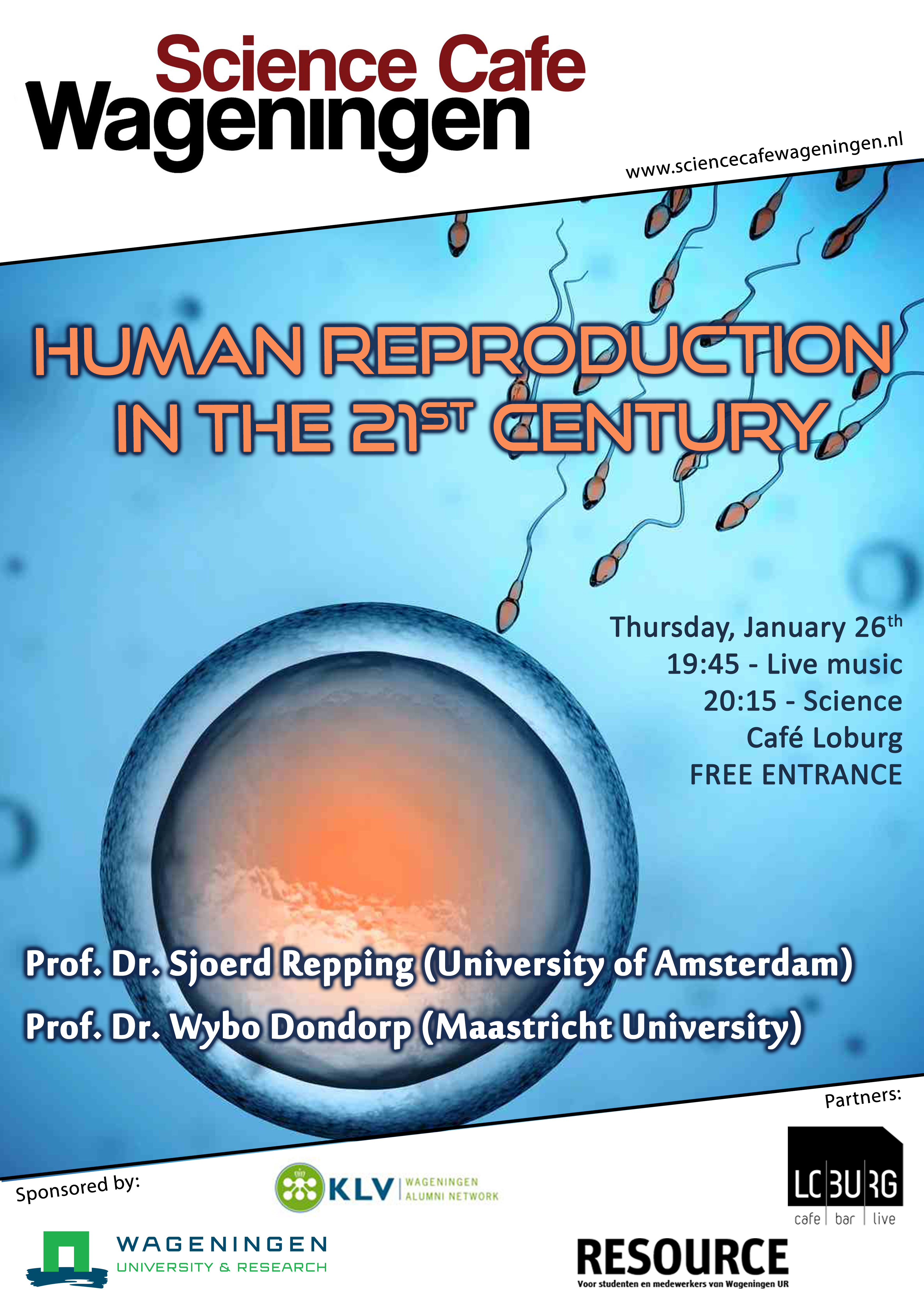 Thursday January 26th
Thursday January 26th
19:45 live music
20:15 speakers
Café Loburg
Human reproduction, where would we be without it? Unfortunately, things don’t always work out the natural way. The past decades have brought a variety of ways to overcome fertility problems. On the other hand, you probably have heard people talking about designer babies: the idea that with modern technology we can engineer a baby to be without defect and have a great life expectancy. Will that be the future of human reproduction in the 21st century? In this Science Café, professor Sjoerd Repping of the University of Amsterdam will discuss the state of the art treatments and technology for assisted pregnancy. The ethical framework for research on human reproduction and for the introduction and use of new technologies will be discussed by professor Wybo Dondorp of Maastricht University. Curious about which possibilities for reproduction we have, and if every possibility should be used? Join us on January 26th to find out.
Sjoerd Repping is professor of human reproductive biology at the University of Amsterdam and associated to the Academisch Medisch Centrum. He is an internationally renowned researcher in the field of human reproductive medicine. He is involved in fundamental research and applied clinical studies, in which he tries to translate scientific developments into applications. A treatment to safeguard fertility of boys undergoing chemotherapy is a clear example. Prof. Repping takes an active role in the societal debate on the use of stem cells and new fertility treatments.
Wybo Dondorp is associate professor of biomedical ethics at Maastricht University. In the past he worked as ethicist for the Dutch Health Council (Gezondheidsraad). His research interest are in the ethics of assisted reproduction, and the ethics of population screening, stem cell research, and genetic testing. He is member of a number of ethical committees. His work is published in prestigious academic journals, such as Human Reproduction, and he shares his views on ethical issues in society through contributions in newspapers such as NRC and Trouw.
